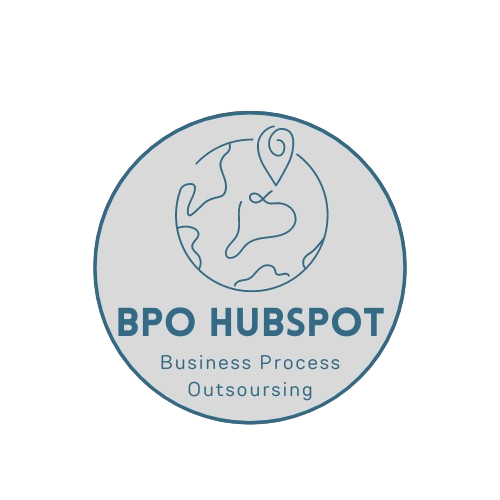From Payroll to Profit: Transforming Non-Core Processes into Strategic Insights
One often-overlooked opportunity lies in transforming non-core processes into valuable information that can drive the core business.

Transforming Non-Core Processes into Valuable Information for Business Growth
In today’s competitive business environment, small and medium-sized enterprises (SMEs) must leverage every available resource to gain an edge. One often-overlooked opportunity lies in transforming non-core processes into valuable information that can drive the core business. Non-core processes such as payroll and accounting are typically seen as administrative tasks, but they hold a wealth of data that, if properly analyzed, can provide critical insights to enhance business performance. This article explores how SMEs can turn these processes into goldmines of information and why outsourcing to expert providers can be a game-changer.
Understanding Non-Core Processes
Non-core processes are essential business activities that support the main operations but are not part of the primary revenue-generating activities. Examples include payroll, accounting, human resources, and IT support. While these functions are crucial for the smooth operation of a business, they often do not directly contribute to the company’s competitive advantage. However, they generate substantial data that can be mined for insights.
Transforming Payroll Data into Strategic Insights
Payroll is a quintessential non-core process that offers a trove of information. Beyond its basic function of compensating employees, payroll data can reveal patterns and trends that are vital for strategic decision-making.
Turnover Rates: By analyzing payroll data, businesses can identify trends in employee turnover. High turnover rates might indicate issues with workplace culture, compensation packages, or employee engagement. Addressing these issues can lead to a more stable and productive workforce.
Absenteeism: Tracking employee absences can help identify patterns that may be linked to job dissatisfaction, health issues, or other underlying problems. Businesses can then implement targeted interventions to reduce absenteeism and improve overall productivity.
Productivity Analysis: Payroll data can also be used to assess productivity by comparing compensation to output. This helps in identifying high-performing employees and areas where productivity can be improved through training or process enhancements.
Turn payroll data into a strategic advantage with our free HR KPI Dashboard and Calculator. This easy-to-use spreadsheet lets you monitor key metrics like employee turnover and absenteeism with just a few clicks. Download it now and gain valuable insights to drive your business forward.
Extracting Value from Accounting Data
Accounting processes, another non-core function, provide a wealth of financial data that, when analyzed, can drive better business decisions.
Cash Flow Forecasting: By closely monitoring accounts receivable and payable, businesses can predict future cash flow trends. This information is critical for ensuring liquidity and planning for investments or expansions.
Cost Management: Detailed accounting records allow businesses to track expenses meticulously. Identifying areas where costs can be reduced without compromising quality can lead to significant savings.
Financial Health Monitoring: Regular analysis of financial statements can provide insights into the overall health of the business. Key performance indicators such as profit margins, return on investment, and debt-to-equity ratio offer a clear picture of financial stability and growth potential.
Leveraging HR Data for Organizational Improvement
Human resources (HR) is another area where non-core processes generate valuable data.
Employee Satisfaction: Surveys and performance reviews can provide insights into employee satisfaction and engagement levels. This data helps in developing policies that improve workplace culture and employee retention.
Skill Gaps: HR data can highlight skill gaps within the organization. Addressing these gaps through targeted training programs can enhance the overall competency of the workforce.
The Role of Outsourcing in Enhancing Data Utilization
Given the potential value hidden in non-core processes, SMEs should consider outsourcing these functions to expert providers. Outsourcing not only ensures that these processes are handled efficiently but also that the data generated is effectively analyzed and utilized.
Access to Expertise: Outsourcing providers specialize in their respective fields and have the expertise to extract meaningful insights from data. This can be particularly beneficial for SMEs that may not have the resources to invest in sophisticated data analytics tools and personnel.
Cost-Effective Solutions: By outsourcing non-core functions, businesses can reduce operational costs and focus their resources on core activities that drive growth.
Scalability: Outsourcing allows businesses to scale operations up or down based on demand without the need for significant capital investment.
Conclusion
Transforming non-core processes into valuable information is a strategic move that can significantly enhance the performance of small and medium-sized enterprises. By leveraging data from payroll, accounting, HR, and other support functions, businesses can gain insights that drive better decision-making and improve overall efficiency. Outsourcing these processes to expert providers ensures that the data is not only handled efficiently but also analyzed to provide actionable insights. As SMEs strive to compete in a dynamic market, turning every process into a source of valuable information can be a game-changer.
Ready to share your perspective? Feel free to leave a comment.


